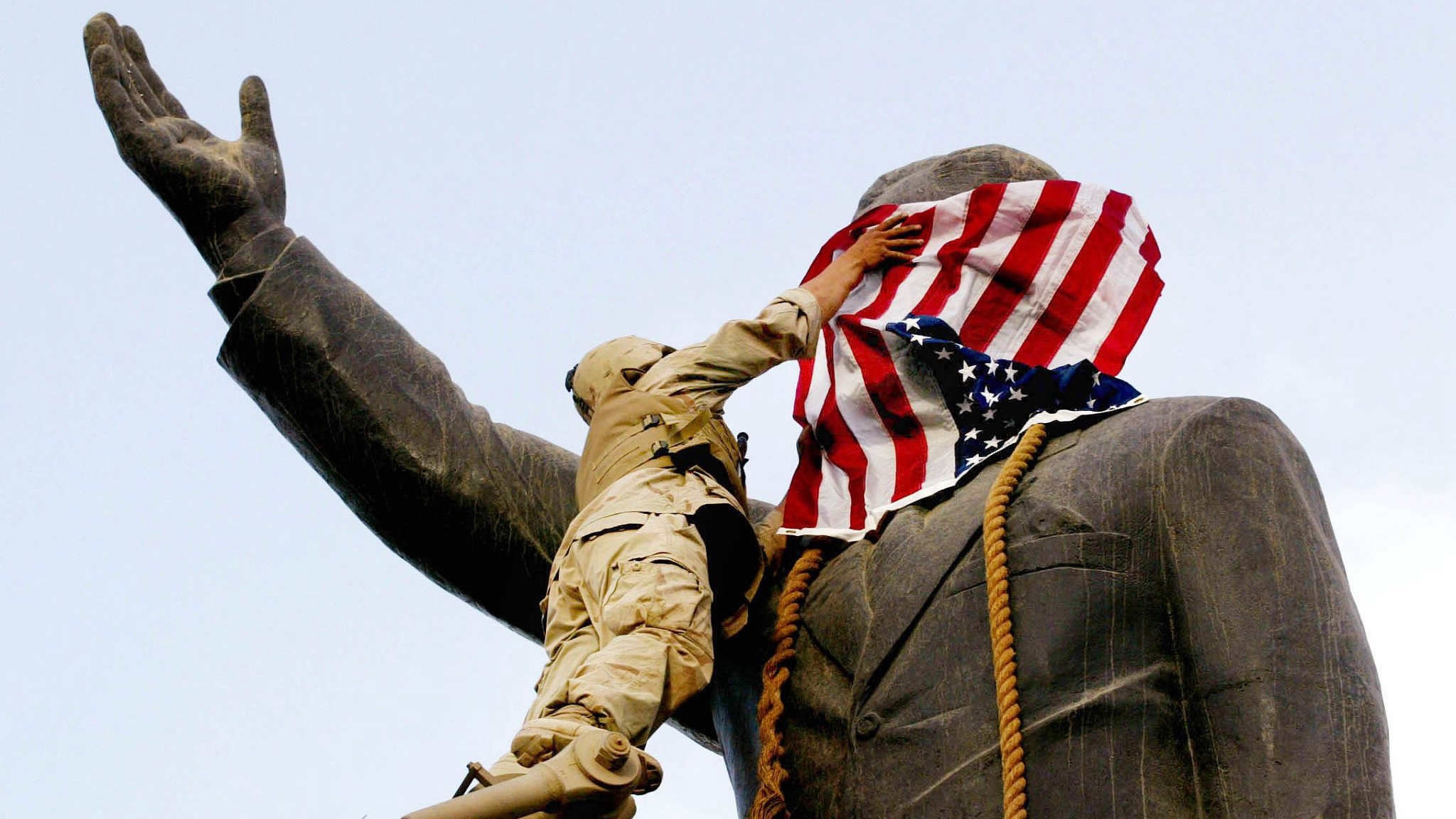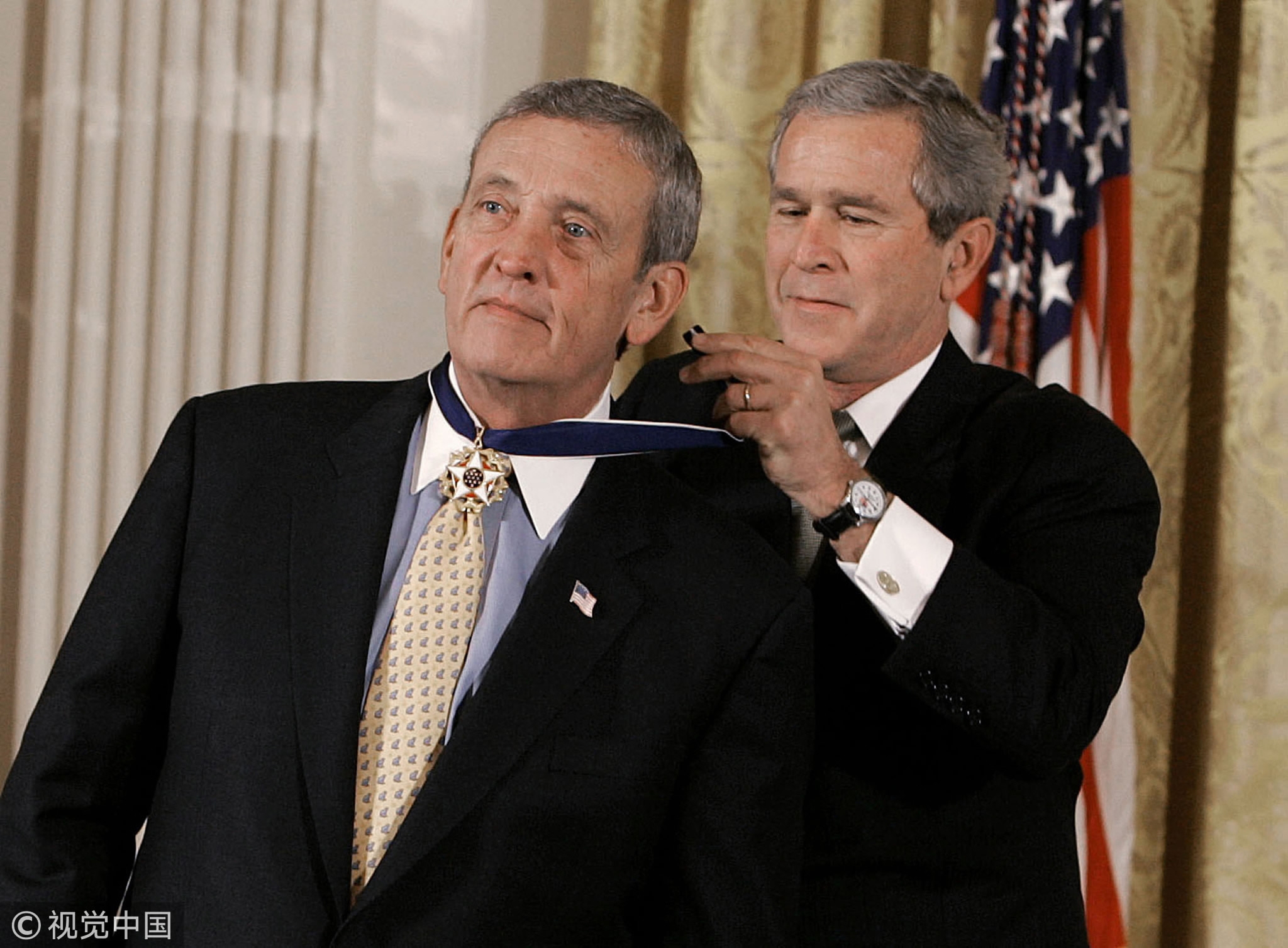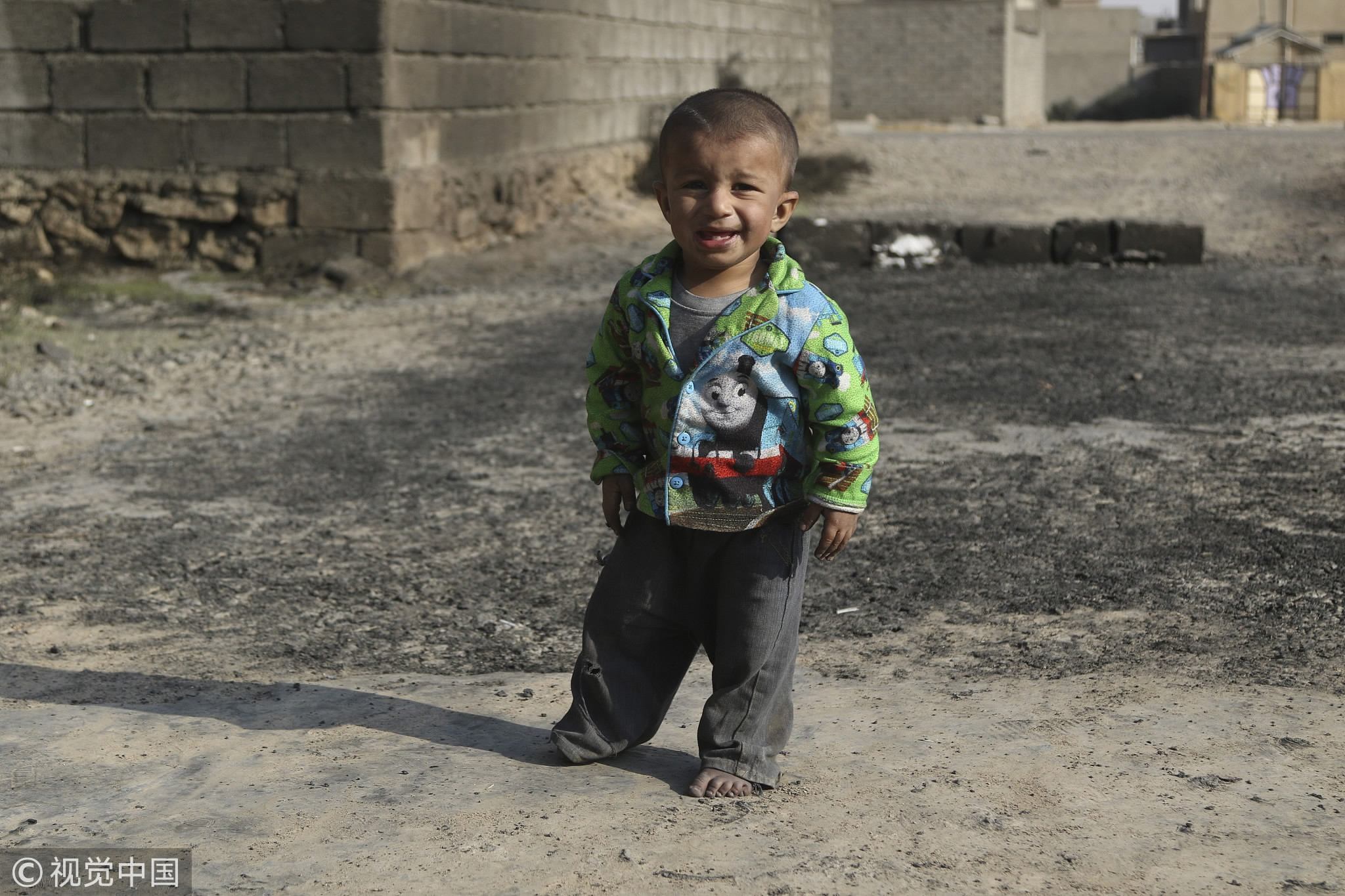
Opinions
14:07, 23-Mar-2018
Opinion: Fifteen years of mass destruction in Iraq and Trump’s ‘more of the same’ strategy
Guest commentary by Omar Nashabe

Fifteen years have passed since the United States led an international coalition to invade Iraq for the purpose of saving the world from “Saddam Hussein’s weapons of mass destruction.” A few days after the fall of Baghdad, the dissolution of the ruling Baath Party, and the destruction of many of the government institutions, the world realized that the dictator did not possess weapons of mass destruction, and that the purpose of invading Iraq was more connected to US economic interests than threats against peace and security.
No one was held accountable for fabricating a false casus belli for launching a devastating war that is still ongoing. Instead, more lies were produced. On May 1 2003, President George W. Bush’s fraudulent “mission accomplished” was announced. American soldiers remained in Iraq, apparently to make sure that the country is completely disintegrated and impoverished and thus incapable of resisting foreign ambitions to exploit their large oil and gas reserves. The vast majority of civilian casualties in Iraq occurred after the “mission accomplished” televised address. Today, it seems the Trump “making America great again” administration will proceed in similar ways.

Former US President George W. Bush (R) presents the Medal of Freedom to retired US General Tommy Franks (L) during a ceremony in the East Room at the White House, December 14, 2004 in Washington, DC. /VCG Photo
Former US President George W. Bush (R) presents the Medal of Freedom to retired US General Tommy Franks (L) during a ceremony in the East Room at the White House, December 14, 2004 in Washington, DC. /VCG Photo
Soon after the US invasion of Iraq in 2003, tension escalated between ethnic groups (Kurds, Arabs and Turkmen), religious groups (Christians, Shia and Sunni Muslims), and political groups (former Baath party members, pro-Iranian and pro-Saudi groups, communists, nationalists, separatists etc.). The US occupation force was more in favor of using the classical divide and conquer strategy between various sects and ethnicities and did not seem seriously willing to set up an efficient puppet central government in Bagdad.
In fact, the names of Governing Council members, that was set up by the Americans in July 2003 in Bagdad, were each followed by their sect and ethnicity. Iraqi government officials’ ethnicity and sect had never been relevant. It was therefore evident that the invaders’ purpose was to incite civil infighting to avoid Iraqi national resistance against occupation and any legitimate demands related to Iraqi national interests.
Violent confrontations between Sunni and Shia groups and between Kurds and Arabs swelled, and were encouraged by US Intelligence, and fueled by Saudi, Iranian and Turkish interference in Iraq. Terror attacks targeting civilians increased and the rate of murder, rape and kidnappings skyrocketed in various parts of the war-torn country.

A boy stands on barefoot after an oil well set on fire in the center of al-Kayyara town to the South of Daesh terror organization-held Mosul in Iraq on October 25, 2016. /VCG Photo
A boy stands on barefoot after an oil well set on fire in the center of al-Kayyara town to the South of Daesh terror organization-held Mosul in Iraq on October 25, 2016. /VCG Photo
Al Qaeda and other known terrorist organizations spread and gained strength, and later a faction of it established the notorious ISIS terrorist venture. Hundreds of thousands of Iraqis were slaughtered and properties, hospitals, schools, infrastructure were devastated. Meanwhile US companies were making a profit from military industry and Iraqi oil and gas exploitation.
The Obama Administration supported an international agreement with Iran that helped decrease tension in Iraq, but was adversely perceived by the Saudis. The Trump administration seems determined to end the agreement and refuel tension in Iraq between Iranian-supported groups.
Trump may be acting against his own interests because the ongoing wars in the Middle East have been paving the way for increased Russian interference and rising influence. The Islamic Republic in Iran is also gaining more ground and has now established strong spheres of influence beyond Iraq, namely in Yemen, Lebanon, Bahrain and inside Saudi Arabia, threatening US interests in these countries.
Stability in Iraq and a US-led international initiative to rebuild the country serves American interests better because it leads to economic and strategic benefits to both American and Iraqis in what could be considered a Chinese encouraged “win-win” situation. Whereas trade and industrial agreements between a well-established Iraqi government and competitive US companies have the potential to secure economic interests for both sides, such a strong government with a strong army could push away Turkish, Iranian and Saudi intervention in Iraqi affairs.
(Omar Nashabe, PhD is a criminal justice analyst and a commentator on politics in the Arab region and the Middle East. He is a former advisor to Lebanese government and one of founders of and a columnist at Al-Akhbar daily. The article reflects the author's opinion, and not necessarily the views of CGTN.)

SITEMAP
Copyright © 2018 CGTN. Beijing ICP prepared NO.16065310-3
Copyright © 2018 CGTN. Beijing ICP prepared NO.16065310-3